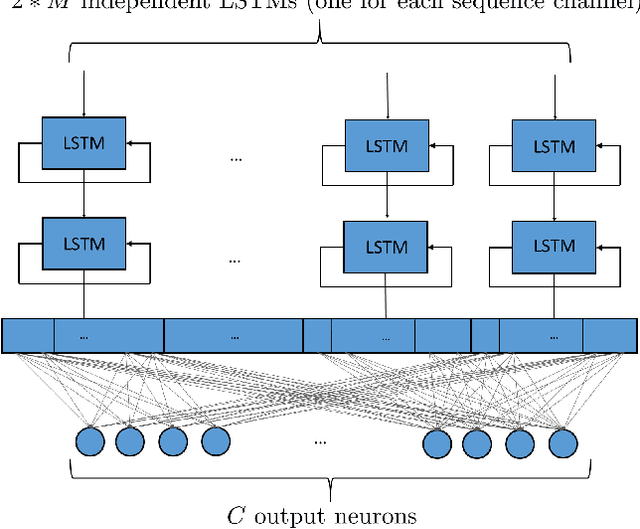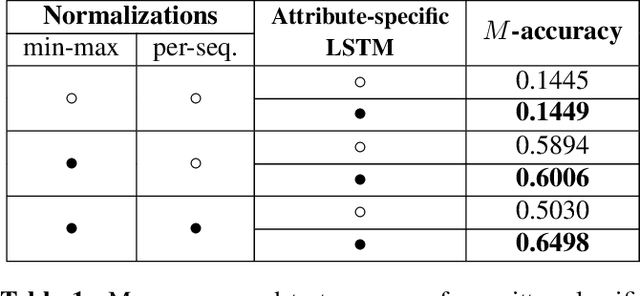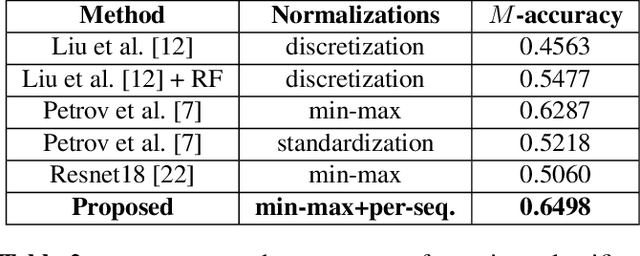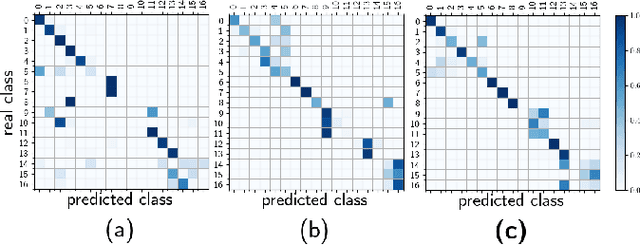David Wittmann
Radar Emitter Classification with Attribute-specific Recurrent Neural Networks
Nov 19, 2019



Abstract:Radar pulse streams exhibit increasingly complex temporal patterns and can no longer rely on a purely value-based analysis of the pulse attributes for the purpose of emitter classification. In this paper, we employ Recurrent Neural Networks (RNNs) to efficiently model and exploit the temporal dependencies present inside pulse streams. With the purpose of enhancing the network prediction capability, we introduce two novel techniques: a per-sequence normalization, able to mine the useful temporal patterns; and attribute-specific RNN processing, capable of processing the extracted information effectively. The new techniques are evaluated with an ablation study and the proposed solution is compared to previous Deep Learning (DL) approaches. Finally, a comparative study on the robustness of the same approaches is conducted and its results are presented.
Signal Clustering with Class-independent Segmentation
Nov 18, 2019



Abstract:Radar signals have been dramatically increasing in complexity, limiting the source separation ability of traditional approaches. In this paper we propose a Deep Learning-based clustering method, which encodes concurrent signals into images, and, for the first time, tackles clustering with image segmentation. Novel loss functions are introduced to optimize a Neural Network to separate the input pulses into pure and non-fragmented clusters. Outperforming a variety of baselines, the proposed approach is capable of clustering inputs directly with a Neural Network, in an end-to-end fashion.
 Add to Chrome
Add to Chrome Add to Firefox
Add to Firefox Add to Edge
Add to Edge